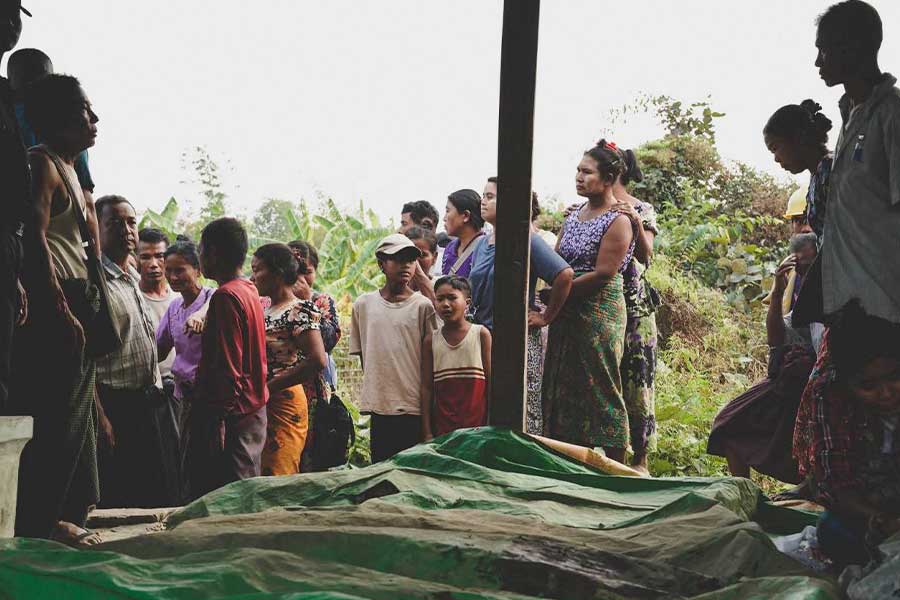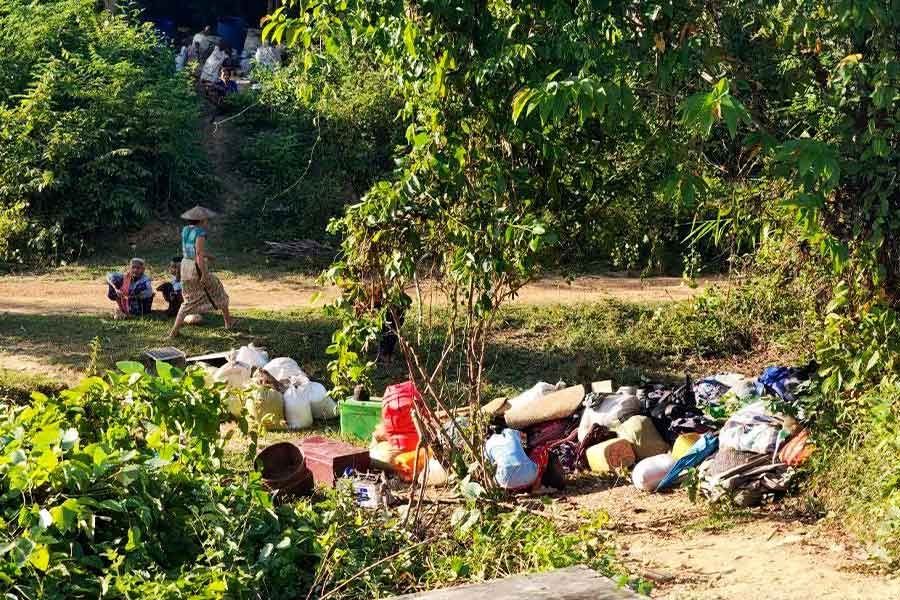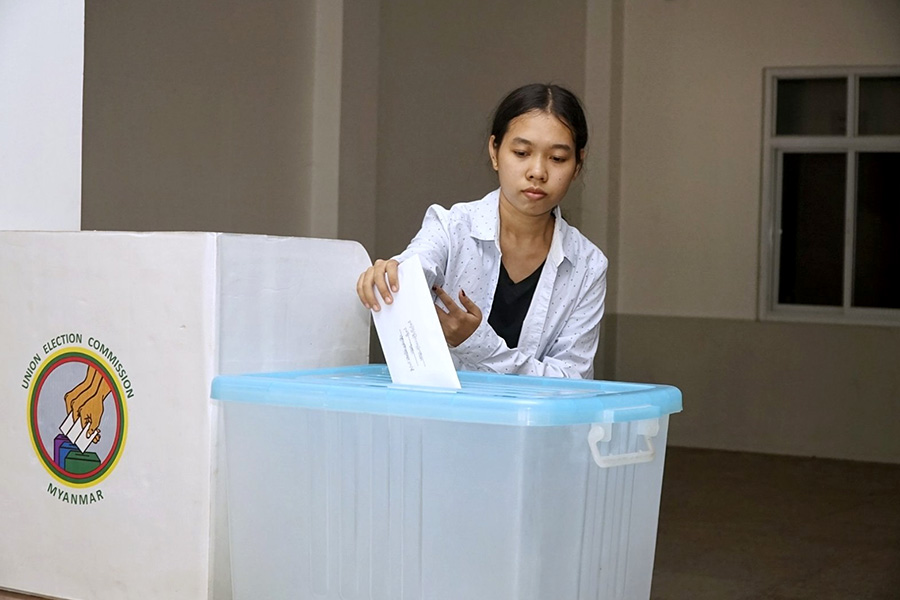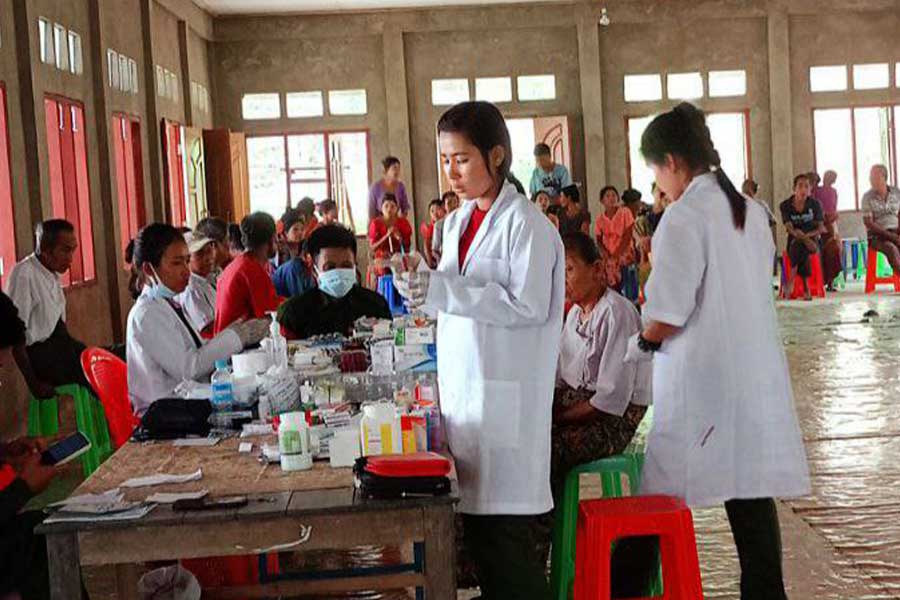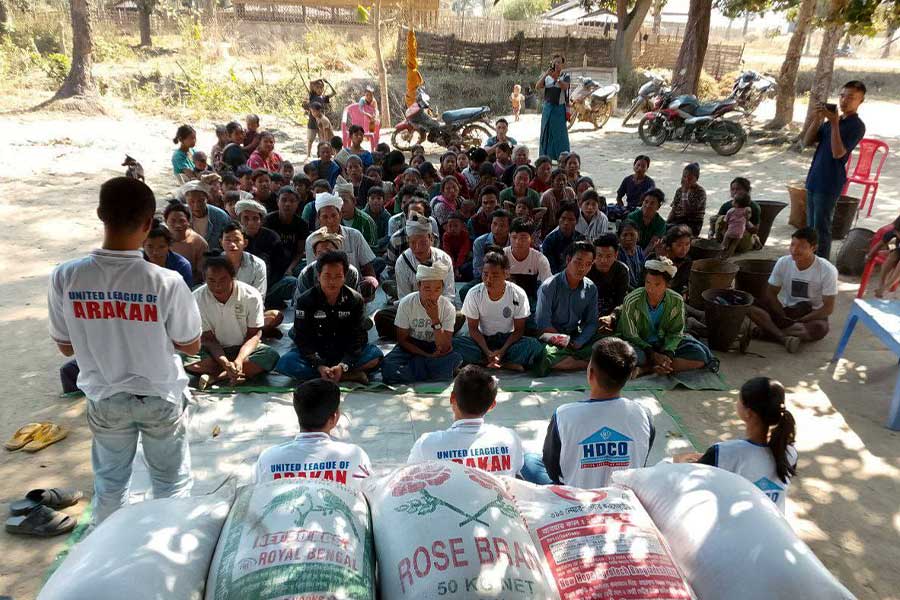- 15 mass casualty incidents from regime airstrikes reported in Arakan State since 2023
- Kyaukphyu IDPs forced to flee again amid junta airstrikes and artillery attacks
- New Diplomatic Movements Between Bangladesh’s New Government and the Arakan Public Administration
- Junta claims over 24 million ballots cast in 2025 poll, cites strong youth turnout
- ULA expands HIV prevention, healthcare services for sex workers in AA-held areas
UEC subcommission’s request for changes to Arakan townships’ election areas as yet unreplied
The Union Election Commission (UEC) has yet to respond to a request from one of its subcommissions for a review of four townships in Arakan State where voting has been cancelled, with time winding down to Election Day.
29 Oct 2020
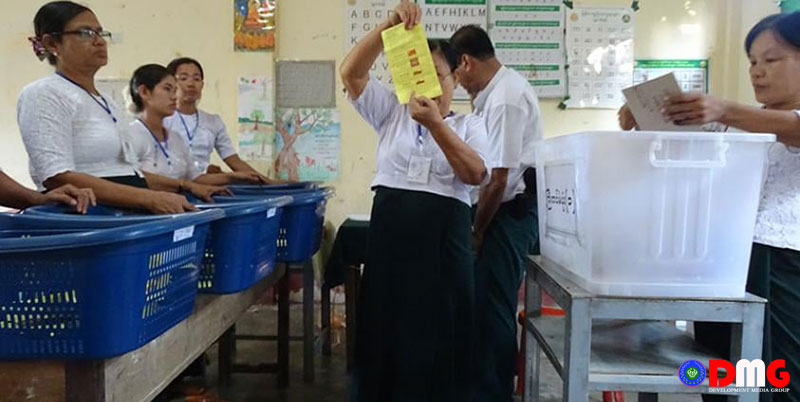
Min Tun | DMG
29 October 2020, Sittwe
The Union Election Commission (UEC) has yet to respond to a request from one of its subcommissions for a review of four townships in Arakan State where voting has been cancelled, with time winding down to Election Day.
The Arakan State election subcommission made an October 26 appeal arguing to the UEC that four village-tracts in Sittwe Township; the entirety of Pauktaw Township; parts of southern Maungdaw Township including the eponymously named town itself; and eight wards and village-tracts in Taungup Township should be allowed to hold elections this year.
But with regard to that communique — originating in discussions of the election subcommission with political parties — U Thurein Htut, secretary of the subcommission, said there had been no reply from the UEC as of October 29.
A spokesperson for the Union Solidarity and Development Party (USDP), Daw Aye Mar Khin, said: “If they will hold elections, they should reply as soon as possible. If there are elections, we need time. There are things we need to do again. They should announce as fast as possible if they will allow voting,” she said.
The submission to the UEC requesting that elections be held in the abovementioned four townships was made after discussions among the Arakan State election subcommission, the Arakan National Party (ANP), the Arakan League for Democracy, the National League for Democracy and the USDP.
“We have not submitted an application since the beginning,” said U Tun Aung Kyaw, the ANP policy advisor and the party’s Amyotha Hluttaw candidate for Sittwe Township this year, referring to the lack of a formal challenge to the constituencies ruled out by the UEC.
“However, we went and discussed. We have not submitted [a formal proposal] to hold the elections in this and that place.”
U Tun Aung Kyaw added: “However, we said it was not fair not holding voting. At the moment we have no plan to proceed with submission of evidence whether the UEC replies to us or not.”
U Myo Kyaw, the secretary of the ALD, acknowledged that the ultimate decision on voting constituencies was at the discretion of the UEC, regardless of any political parties’ input.
“The political parties have already said what they should have said. It is the job of the UEC to do or not to do. It is a matter of their role and our role,” he said.
“Even if we give advice, either to the government or the Tatmadaw, we see that they do what is to their benefit. In other words, the additional areas [thus far allowed by the UEC] to conduct elections are military territory, and we see that the Tatmadaw will grant voting in those areas,” he added.
The UEC announced on October 27 that four village-tracts in Ann Township and three village-tracts in Kyaukphyu Township, which it had previously ruled out for elections, would in fact be holding a vote on Election Day, November 8.
The amendments applied to a UEC announced from October 16 that said nine townships in their entireties would not hold elections next month, and that four townships would vote only partially.
UEC member U Myint Naing appeared to open the door to challenge of the commission’s initial October 16 cancellations when he subsequently said that consideration would be given if no-election constituencies showed future improvements in their security environments. The central contention of those challenging the mid-October disenfranchisement is that some areas on the UEC’s cancellations list never met the threshold to be a security concern to begin with.




